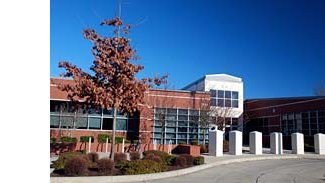By :EXPRESS STAFF
The International Association of Fire Chiefs (IAFC) recently announced the creation of a nationwide emergency response advance team known as the IAFC's "Go Team." The "Go Team" is comprised of 20 highly skilled fire chiefs from throughout the country, with a two-member team located in each of the 10 Federal Emergency Management Agency (FEMA) regions nationwide.
Fire Chief Michael Chapman, from Hailey, Idaho, and Assistant Fire Chief Kirk Hale, from the Tualatin Valley Fire District in Oregon comprise the FEMA Region 10 team. Region 10 is comprised of the states of Idaho, Washington, Oregon and Alaska.
The team's mission is to provide free assistance to any local, state or federal agency during times of disaster. A key goal of the team is to be able to respond significantly faster to all types of emergencies and disasters, and to help manage the incident. While most unforeseen disasters usually don't have effective management of a scene for many days or weeks, the "Go Team" mission is to be on site of the emergency within 12 hours from the request for assistance. This allows the team to more quickly assess the needs of the community affected, and better coordinate the local, state and federal resources as they arrive.
Each "Go Team" member is highly trained to assist with virtually any function required in the Incident Command System including resource management, creation of incident action plans and the necessary documentation needed for state and federal assistance and funding. Team members were selected for their lengthy experience in the fire and emergency services with most members of the team having more than 25 years of service, a minimum of a Baccalaureate degree in fire or public administration, and certified as a chief fire officer.
Chief Chapman said, "Unfortunately, there are many types of emergencies that have a huge impact on a community, but don't qualify for state or federal assistance. Examples of when our teams could be used might include when a firefighter dies in the line of duty, an aircraft crash, or a building collapse. Many smaller communities don't have the resources to manage these types of complex or long term incidents. Many of these types of incidents don't necessarily require a large incident management team either."
Chapman continued, "The "Go Team" can assist the community with technical assistance and advice to mitigate these types of incidents. In larger incidents where a Type 1 or 2 Incident Management Team is operating, we can operate as a liaison between the team and the community to coordinate resource deployment."
Thursday, July 29, 2010
Subscribe to:
Post Comments (Atom)






No comments:
Post a Comment